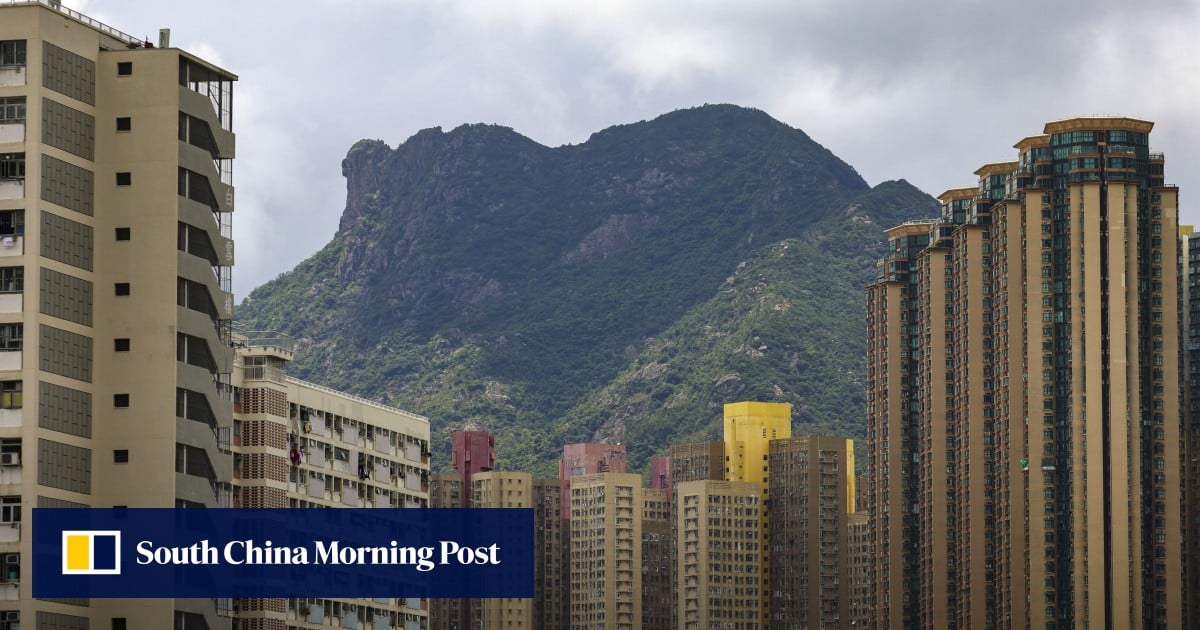Hong Kong must act before ‘deep correction’ in property market, Midland analyst says after 2023 forecast points to record lows for new, secondary markets
Hong Kong should move to restore confidence in its property market before it enters a “deep correction”, an analyst said after a lacklustre forecast was made for 2023.
Hong Kong recorded 8,792 new home sales in the first nine months of the year, and is expected to see about 11,000 deals for the whole year, a number that will not only be the second-lowest in nearly a decade but also just slightly higher than last year’s tally, Centaline Property Agency said on Sunday. The city saw 10,261 deals last year, the agency said.
Anticipation of the easing of Hong Kong’s cooling measures has grown since the government gave its strongest hint yet on Wednesday, with Financial Secretary Paul Chan Mo-po saying that the conditions that prompted the authorities to impose these measures starting in 2009 no longer prevailed.
The Midland Confidence Index, which reflects the confidence of property owners putting their homes up for sale, rose 1 per cent week on week on Monday, a slight recovery after two consecutive weeks of declines. The gauge, however, was still at its third lowest weekly level since mid-December last year, according to Midland Realty.
“Under the current economic situation, even if the government cuts all three cooling measures, it will not cause the property market to soar,” said Buggle Lau Ka-fai, Midland’s chief strategist.
Easing of the cooling measures will lead to more transactions, but home prices will not see a sharp increase, he added.
New World boss joins chorus calling for easing of property cooling measures
New World boss joins chorus calling for easing of property cooling measures
Hong Kong’s property market has cooled as headwinds including a weakening economic outlook, elevated interest rates and glut of new flats continue to weigh on sentiment.
The city’s mortgage rates remain high after seven major lenders, including the three note-issuing banks – HSBC, Standard Chartered Bank and Bank of China (Hong Kong) – said last week that they would raise their mortgage rates. The payment on a typical HK$5 million (US$643,000) mortgage over 30 years will increase by 6 per cent – or HK$1,430 – per month to HK$24,232, after the mortgage rate increases, according to calculations made by mortgage broker mReferral.
Midland’s home prices index declined 0.69 per cent week on week on Monday, falling for seven consecutive weeks. The gauge was down 5.5 per cent from a year-end high, while its year-to-date increase narrowed to a mere 0.46 per cent.
Developers set to delay flat sales until government eases cooling measures
Developers set to delay flat sales until government eases cooling measures
The government should cut the buyer’s stamp duty, Lau said. Non-permanent residents currently pay a 30 per cent levy when buying a home, while those who enter Hong Kong under a government scheme to attract talent have to wait seven years to get a refund of this stamp duty.
The government should also adjust the double stamp duty, which doubles the ad valorem (according to value) stamp duty tax for a buyer who is not a first-time buyer or who already holds residential property in Hong Kong, to basic stamp duty, Lau added. This will increase investors’ appetite as Hong Kong’s rental index has risen this year.
In the second-hand market too, the signs are not great. According to Centaline, the first nine months saw 24,158 deals, while the forecast for the whole year stands at about 31,000 transactions. This number will fall short of last year’s tally – 31,802 deals – by 2.5 per cent. The total number of deals will also be the lowest since 1996, when records began.
Hong Kong developer calls for review of stifling property curbs to end the rot
Hong Kong developer calls for review of stifling property curbs to end the rot
“If transactions hover at a low level, coupled with a significant drop in home prices, then confidence will break down and will lead to a series of problems in the overall economy,” Lau said.
“We can’t control how external factors like interest rate cycles and geopolitical relations change, but we can definitely do something internally, like cutting the ‘spicy measures’ and changes in the supply of new flats.”
The 1997 Asian financial crisis led to seven years of consolidation in Hong Kong’s property market and “we should learn from the past”, Lau added.
“We should do something before it gets worse, to avoid the market going into a deep correction.”





